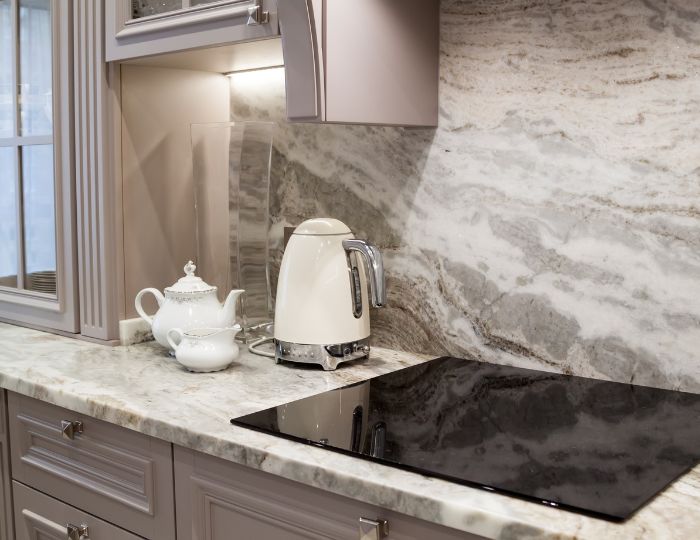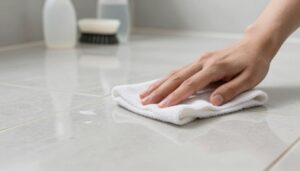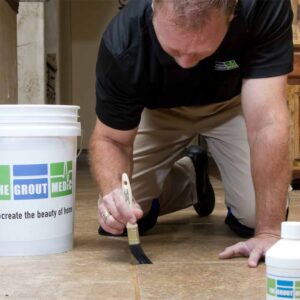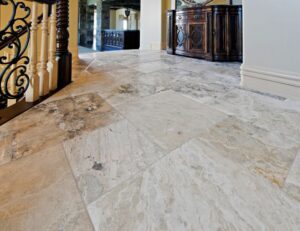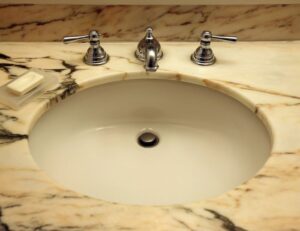Natural stone surfaces—whether countertops, floors, or bathroom tiles—add elegance and durability to any home. Materials like marble, granite, limestone, and travertine are not only visually stunning but also long-lasting. However, even the most durable stone is porous, which means it can absorb liquids, oils, and dirt if left unprotected. This raises a common question among homeowners: is sealing stone surfaces necessary?
The short answer is yes—but understanding why, how it works, and when to seal is key to protecting your investment. In this post, we’ll break down the benefits of sealing, what can happen if you don’t, and why professional sealing is often the best choice.
Why Stone Surfaces Are Vulnerable
Natural stone looks solid and durable, but it’s actually composed of tiny pores that make it vulnerable to stains and damage. Even high-quality granite or quartzite can absorb:
-
Food and beverage spills
-
Oils from cooking or personal care products
-
Water and humidity, especially in bathrooms or kitchens
-
Dirt and dust that settle into floors, countertops, or walls
When liquids penetrate these pores, they can cause staining, discoloration, and even surface etching. Without a protective layer, daily use eventually diminishes the stone’s appearance and makes cleaning more difficult.
The Benefits of Sealing Stone
Sealing your stone surfaces creates a protective barrier that fills the microscopic pores in the material. This prevents liquids and debris from penetrating the stone while still allowing it to “breathe.” The benefits include:
-
Stain protection: Sealing dramatically reduces the risk of permanent discoloration from spills, oils, and other substances.
-
Easier cleaning: Sealed stone surfaces repel dirt and grime, making routine cleaning faster and more effective.
-
Enhanced longevity: By preventing water infiltration and wear, sealing extends the lifespan of your stone surfaces.
-
Preserved appearance: Sealing maintains the stone’s natural color, shine, and texture over time.
Without proper sealing, even minor spills can leave permanent marks, and high-traffic areas can look dull or worn out prematurely.
When and How Often Should You Seal Stone?
The frequency of sealing depends on the type of stone and its use. Softer stones like marble and limestone may need resealing every 6–12 months, while harder stones like granite can last 1–3 years before resealing is necessary. Signs that your stone may need sealing include:
-
Water droplets soaking into the surface instead of beading
-
Dull or uneven appearance
-
Darkened spots from spills or stains
Professional sealing ensures the correct product and method are used. Over- or under-application can result in a weak barrier or a glossy residue that attracts dirt. At The Grout Medic, we tailor our sealing services to your stone type and household needs for maximum protection.
Why DIY Sealing Often Falls Short
Many homeowners attempt DIY sealing, but it’s easy to make mistakes that reduce effectiveness. Common problems include:
-
Using the wrong sealant for the stone type
-
Applying too little or too much sealant
-
Failing to properly clean the stone before sealing
-
Overlooking edges, grout lines, or seams
Professional services like The Grout Medic ensure every surface is cleaned, prepped, and sealed correctly. This not only protects your stone but also enhances its natural beauty and longevity.
Let The Grout Medic Protect Your Stone Surfaces
Sealing your stone surfaces is more than just an aesthetic choice—it’s essential for protecting your investment, maintaining a healthy home, and preserving your stone’s natural beauty. From countertops and bathroom tiles to floors and decorative accents, professional sealing prevents stains, reduces maintenance, and keeps your stone looking like new.
Call The Grout Medic today to schedule a consultation or request a free quote. Let our experts provide professional sealing services that safeguard your stone and keep it stunning for years to come.

